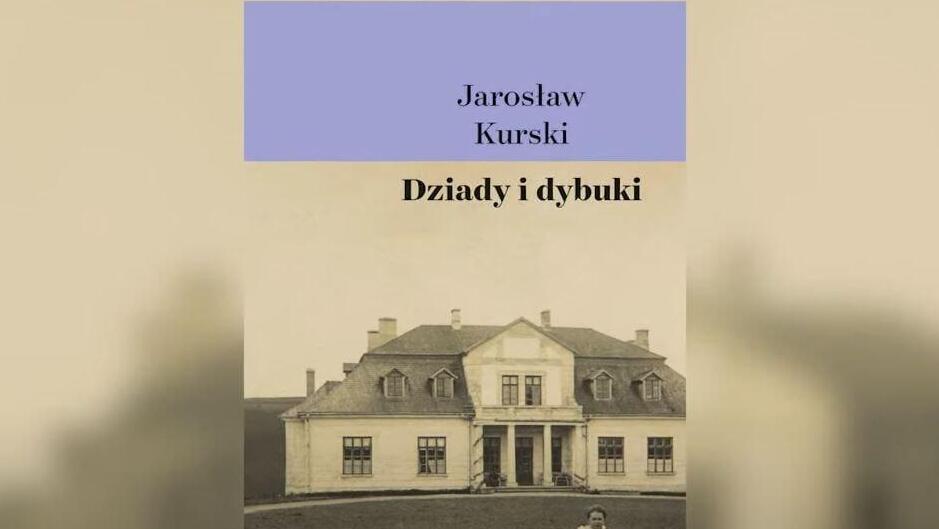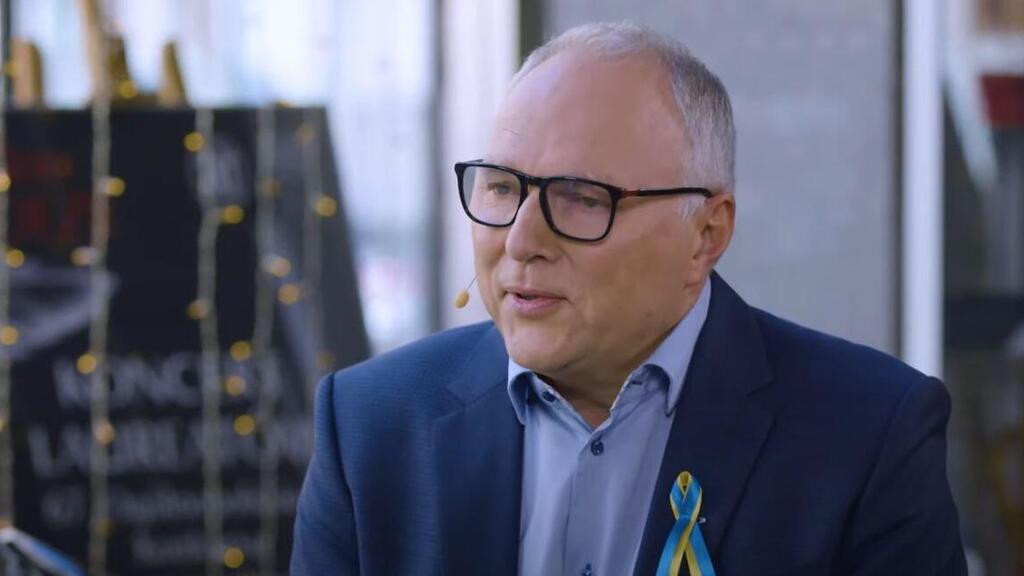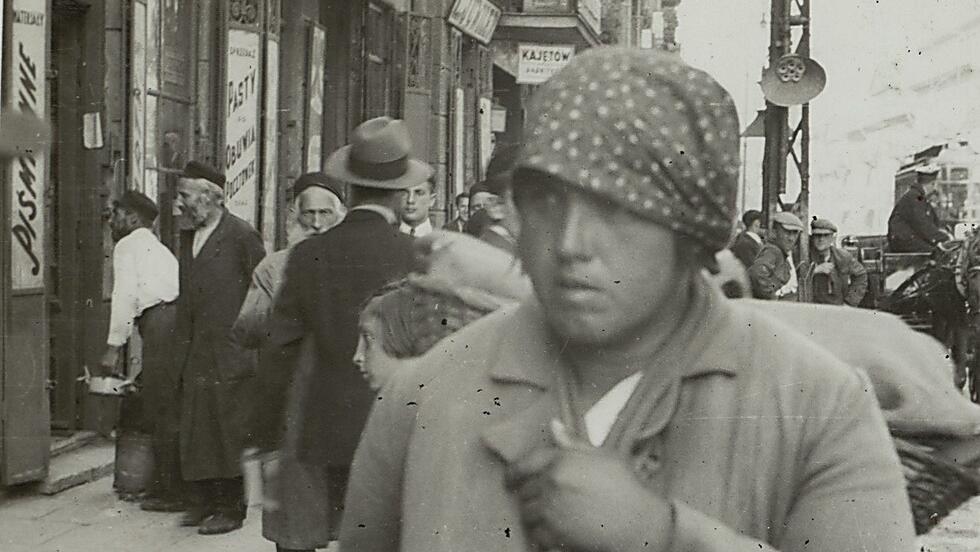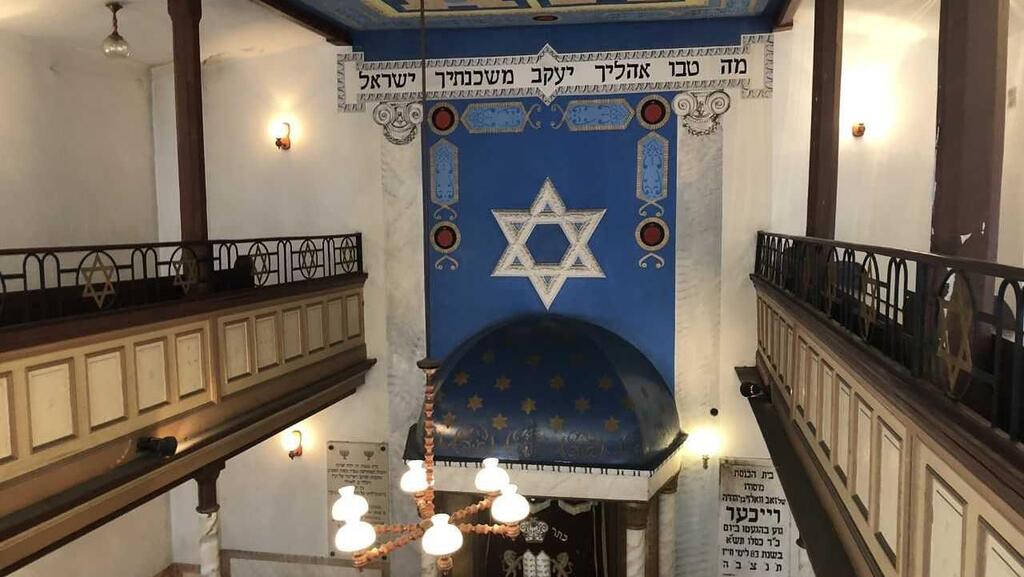A new book was published in Poland this month, which tells the tale of Polish Jews. The 450 pages long book is titled "Dziady i Dybuki," which cannot be properly translated into Hebrew.
The book’s message, however, can be conveyed clearly: a Polish Jew shouldn’t deny his roots and identity to assimilate. Doing so will haunt his or hers consciousness and thoughts, and will not allow to rest.
Jarosław Kurski, the book’s author, is the deputy editor in one of Poland’s largest and most influential newspapers, the Gazeta Wyborcza, and a bestselling author and publisher. Kurski in his book recites the steps of finding his hidden Jewish heritage and accepting the “Jewish in the Polish” inside of him.
Kurski, like most, understands you cannot talk about the Polish culture throughout history without talking about the important part the Jews played in it, and the rampant antisemitism they had to face (and still face to this day).
The author and his brother Jacek were born in 1963 and 1966, respectively, to a patriotic Polish family. Their grandfather, father and uncles - all fought in the Polish army against the Nazis during World War II. Their mother, Anna, was a maritime lawyer, a devoted Polish patriot and a Catholic. The only topic she stayed quiet on was her mother, Theodora, even when others would utter antisemitic remarks near her.
In 1989, Poland broke free of the communist regime and Poland’s Solidarity Movement rose to power. Kurski, who was a member in the movement since his youth, became the communications consultant to the movement’s leader Lech Wałęsa.
Kurski quit his position a year later and began working on a book about Wałęsa, called “The Leader”. He intended to include in his book one of the many conversions the two shared, where Wałęsa asked: “Maybe you mother is Jewish?”
When Kurski’s mother read the book's draft - she panicked. The mother began yelling: "I am Polish," over and over again, telling Kurski that he had no idea what antisemitism in Poland can do to a person.
This section was removed from the manuscript, and Kurski promised his mother to never touch the subject ever again - at least as long as she was alive. After she had passed away, Kurski began collecting every scrap of information about his family’s Jewish heritage, constructing a complex genealogical tree, reaching as far as Rabbi Elijah ben Solomon Zalman, called the “Vilna Gaon” (Genius of Vilna).
Kurska managed to reconstruct a wide picture of the 18th century Jewry in Poland, filled with interesting characters, including rabbis, Jewish converts, Jews who assimilated into Polish culture, Zionists, immigrants and many others.
Take for example Ser Louis Bernstein Neymar, brother to Kurski’s grandmother Theodora. He left Poland in 1907 because he “could not bear anymore humiliation and prosecution as a Jew". He became a British historian and an expert on the British state legislature. He served in the British Foreign Ministry in London, was a fervent Zionist, and his friends included Dr. Chaim Weizmann and Pof. Jacob Talmon.
Kurski believes many modern-day Poles are in fact Jewish, but are either unware of it or are simply hiding it - living in doubt, shame, alienation and fear.
According to Kurski, they have nothing to be ashamed of, they should be proud of their heritage and openly fight against antisemitism.
"I belong to a small group of Polish Jews, who survived the Holocaust, pogroms, the antisemitic Communist prosecution in 1968, and bouts of racism of recent years," Kurski writes.
Jarosaw’s brother Jacek was in charge of Poland’s public television broadcaster, while serving under the catholic national-conservative ruling party “Law and Justice.”
At first it seemed like the uncovering of his Jewish roots would not impact him, but maybe it did. Jacek was suddenly fired from his position “without explanation”- right when parts of his brother’s book were released across Poland.





